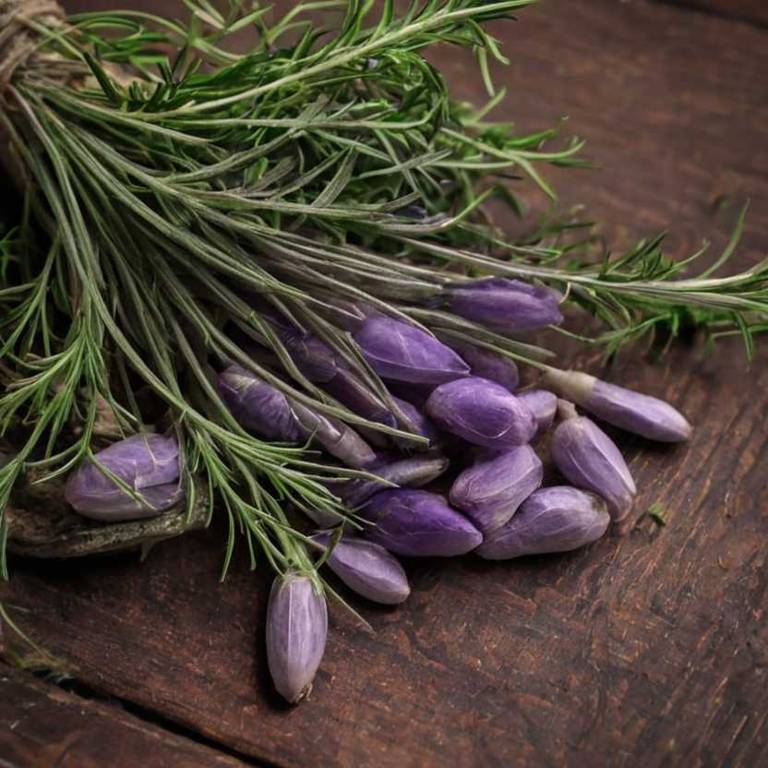10 Best Crocus Sativus Preparations

The best medicinal preparations of Crocus sativus are tinctures, teas, capsules, decoctions, and creams, each offering unique benefits for health and wellness.
Tinctures provide concentrated extracts for quick absorption, while teas offer a gentle way to consume its soothing properties.
Capsules ensure consistent dosing and convenience, making them ideal for daily use.
Decoctions involve simmering the petals to extract their active compounds, often used for digestive support.
Creams, infused with saffron, are applied topically to reduce inflammation and promote skin health.
Below there's a list of the 10 best herbal preparations of crocus sativus for medicinal purposes.
1. Tinctures
Crocus sativus tinctures is commonly used to treat digestive disorders, insomnia, and menstrual pain.
These tinctures are often employed in traditional medicine to alleviate symptoms of anxiety, depression, and inflammation. The most common ailments addressed include gastrointestinal issues, sleep disturbances, and hormonal imbalances. The bioactive constituents responsible for these effects include crocins, crocetins, and safranal, which possess antioxidant, anti-inflammatory, and neuroprotective properties.
These compounds contribute to the tinctures' ability to support overall wellness and manage various health conditions.

2. Teas
Crocus sativus teas is commonly used to support digestive health, alleviate symptoms of depression, and promote relaxation due to its calming effects.
The most common medicinal uses of this herbal preparation include treating digestive disorders such as indigestion and bloating, managing mild depressive symptoms, and aiding in sleep disorders like insomnia. The bioactive constituents responsible for these medicinal properties include crocin, crocetin, safranal, and kaempferol, which contribute to its anti-inflammatory, antioxidant, and sedative effects. These compounds work synergistically to provide the therapeutic benefits associated with saffron tea.
Additionally, it is sometimes used to enhance mood and reduce stress levels.

3. Capsules
Crocus sativus capsules is commonly used to support digestive health, alleviate menstrual discomfort, and promote relaxation.
These capsules are often employed to treat ailments such as indigestion, bloating, and menopausal symptoms due to their soothing and calming effects. The bioactive constituents responsible for these medicinal properties include crocin, crocetin, and safranal, which are known for their antioxidant, anti-inflammatory, and sedative qualities. Additionally, these compounds may contribute to the plant's potential in reducing oxidative stress and improving mood.
Overall, Crocus sativus capsules are valued for their natural therapeutic benefits in various health conditions.

4. Decoctions
Crocus sativus decoctions is commonly used to treat digestive disorders, inflammation, and respiratory conditions.
These preparations are often employed to alleviate symptoms of indigestion, gastritis, and coughs due to their soothing and anti-inflammatory properties. The most common medicinal uses include easing gastrointestinal discomfort, reducing inflammation in the respiratory tract, and supporting overall digestive health. The bioactive constituents responsible for these effects include crocins, crocetin, and safranal, which contribute to its antioxidant, anti-inflammatory, and antispasmodic properties.
These compounds work synergistically to provide therapeutic benefits in various health conditions.

5. Creams
Crocus sativus creams is commonly used to treat skin conditions and inflammatory disorders due to the therapeutic properties of saffron.
These creams are often applied topically to alleviate symptoms of eczema, psoriasis, and other dermatological issues. They are also used to reduce inflammation and promote wound healing. The bioactive constituents responsible for these effects include crocins, crocetin, and safranal, which possess antioxidant, anti-inflammatory, and antimicrobial properties.
These compounds contribute to the medicinal value of saffron-based creams in both traditional and modern medicine.

6. Lozenges
Crocus sativus lozenges is commonly used to alleviate symptoms of respiratory and throat conditions, such as sore throat, cough, and inflammation.
These lozenges are often employed to treat ailments like pharyngitis, laryngitis, and other inflammatory throat disorders due to their soothing and antimicrobial properties. The bioactive constituents responsible for these effects include crocins, which are carotenoid pigments with antioxidant properties, and safranal, a volatile compound known for its anti-inflammatory and antimicrobial activities. Additionally, the presence of essential oils and flavonoids contributes to the lozenges' ability to reduce irritation and promote healing in the throat.
These herbal preparations are valued for their natural approach to managing mild to moderate throat discomfort.

7. Oinments
Crocus sativus oinments is commonly used to treat skin conditions, inflammation, and pain due to the plant's medicinal properties.
These oinments are often applied topically to alleviate symptoms of eczema, psoriasis, and minor burns. The most common medicinal uses include reducing inflammation, soothing skin irritations, and promoting wound healing. The bioactive constituents responsible for these effects include crocin, crocetin, and safranal, which possess antioxidant, anti-inflammatory, and antimicrobial properties.
These compounds contribute to the ointment's ability to support skin health and reduce discomfort associated with various dermatological issues.

8. Oils
Crocus sativus oils is commonly used to treat digestive disorders, respiratory issues, and skin conditions due to its therapeutic properties.
The most common medicinal uses include alleviating symptoms of indigestion, reducing inflammation in the respiratory tract, and promoting skin healing. These oils are also used in aromatherapy to relieve stress and improve mood. The bioactive constituents responsible for these effects include crocins, crocetins, and essential oils such as santalene and bisabolol.
These compounds possess anti-inflammatory, antioxidant, and antimicrobial properties that contribute to the oil's wide range of health benefits.

10. Syrups
Crocus sativus syrups is commonly used to treat respiratory and digestive disorders, as well as to alleviate symptoms of anxiety and insomnia.
These syrups are often prescribed for conditions such as bronchitis, coughs, and gastrointestinal issues due to their soothing and antispasmodic effects. The most common medicinal uses include relief from coughing, easing digestive discomfort, and promoting relaxation. The bioactive constituents responsible for these effects include crocins, safranal, and crocetin, which have antioxidant, anti-inflammatory, and calming properties.
These compounds contribute to the syrups' ability to support respiratory health, reduce inflammation, and promote emotional well-being.
